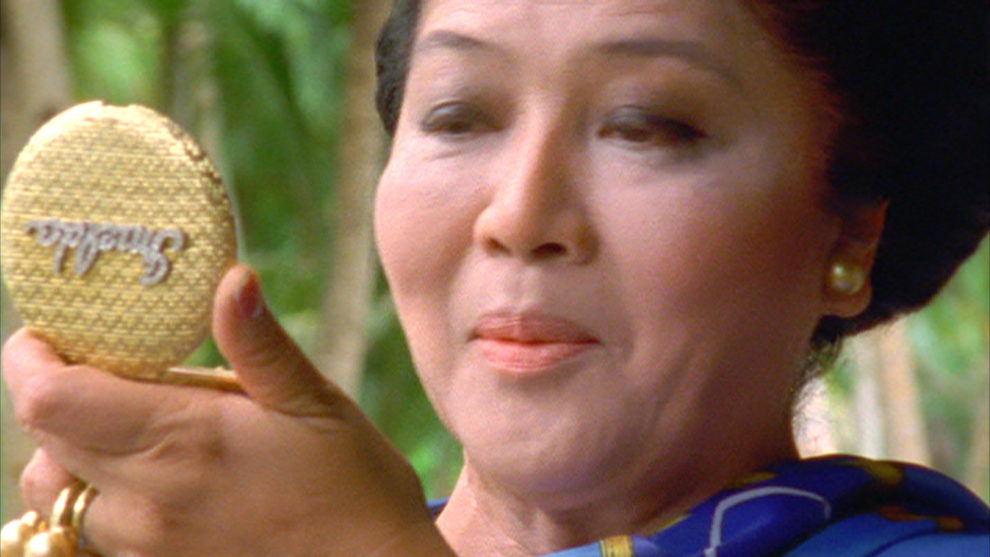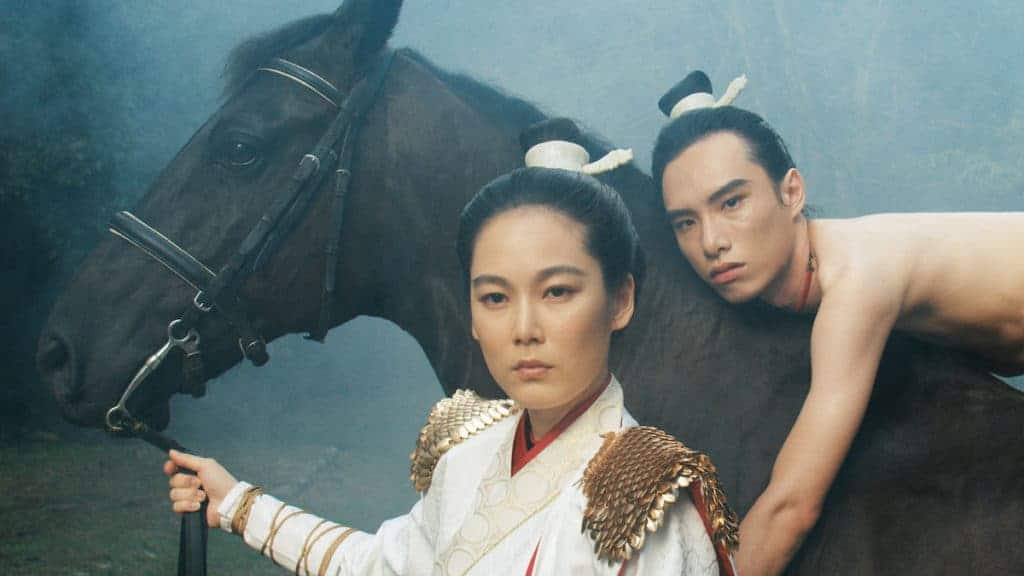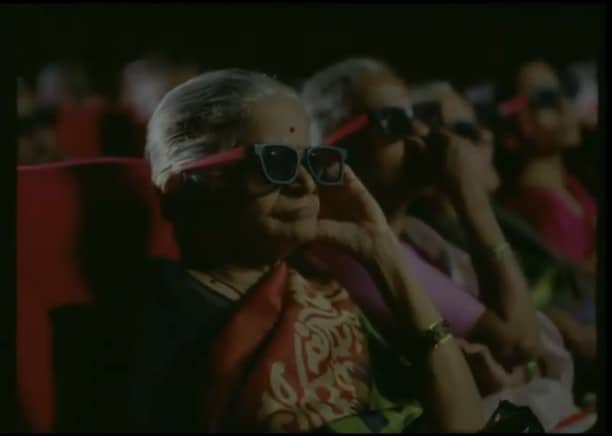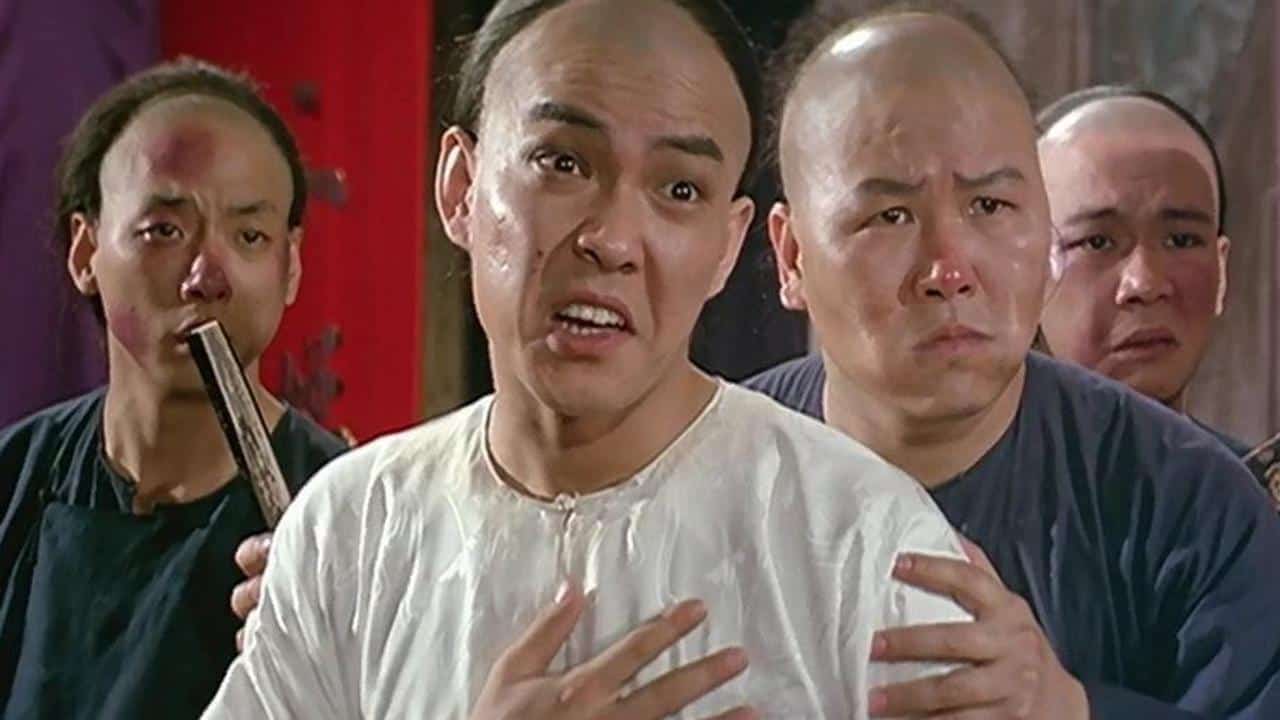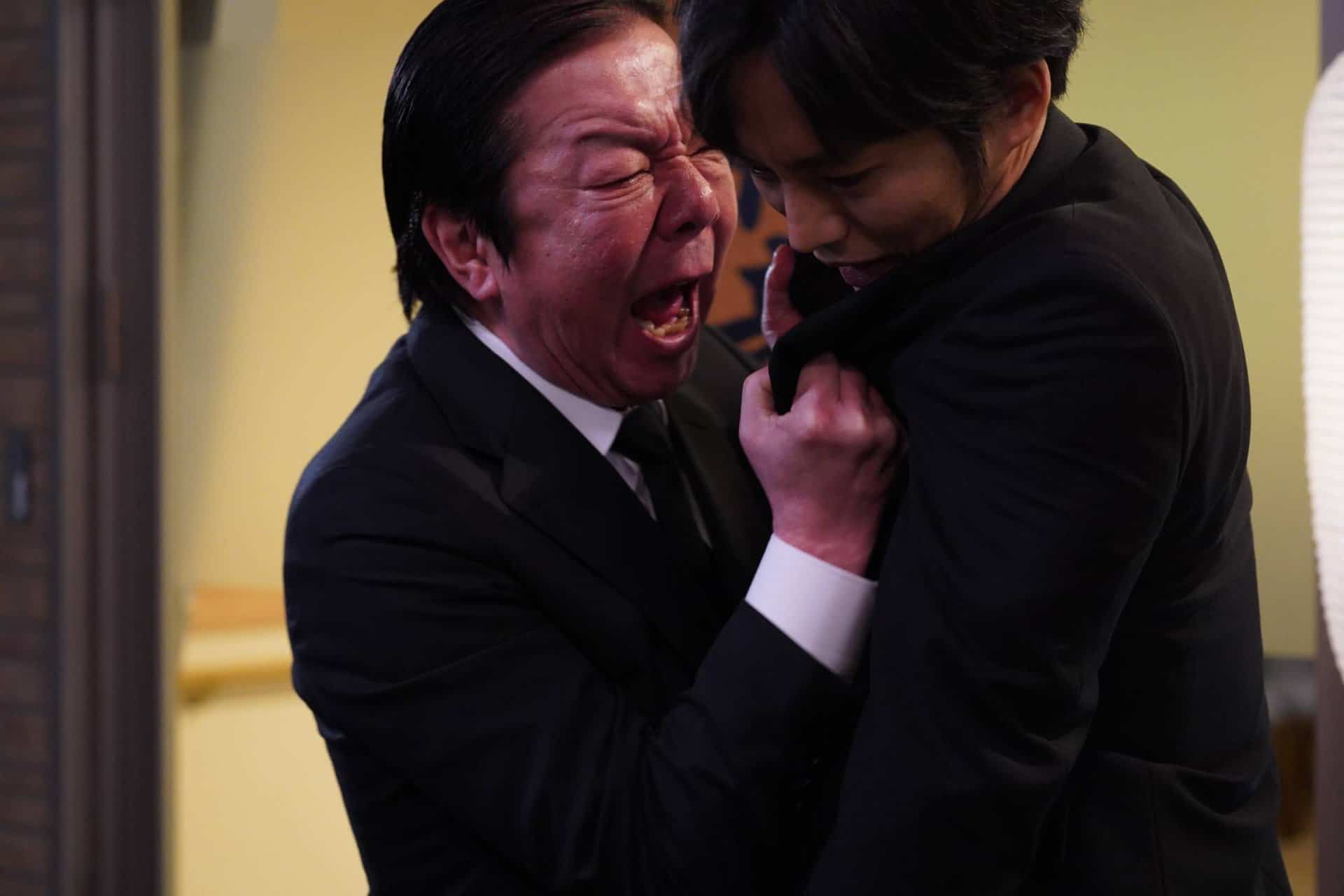Considering that the recent elections in the Philippines ended up with Bongbong Marcos and Sara Duterte winning the presidency and vice presidency respectively, this 2003 documentary about Imelda Marcos and her rise to power on the side of Ferdinand, seems more relevant than ever. Ramona S. Diaz, who recently gave us the excellent “A Thousand Cuts”, is at the helm of another excellent film.
Buy This Title
on Amazon
The documentary begins with Imelda talking to the camera, an aspect that continues throughout the movie, and actually mirrors her true character, as her tendency to hear herself talk was infamous and is actually documented in the film, by a Jesuit priest no less, who had to hear her for three hours before she got tired and put a VHS to play, of herself talking on video. At the same time, the fact that she is the center of a universe she created around herself, and the fact that she feel untouchable in it, helped Diaz in her filming immensely, since Imelda had no issue of talking about everything, even when her words actually harmed her case, not to mention her reputation.
Apart from her own and the Jesuit priest's words, the documentary comprises of a series of interviews, including of her childhood friends, her couturier, associates and opponents of the Marcos regime, authors, historians and journalists, and American diplomats, who shed as much light as possible both in her life and also on the history of the Marcos regime and of the Philippines as a whole.
As such, her marriage to Marcos, which only happened after knowing him for 11 days, essentially begins the story, continuing with the way she essentially campaigned for him, mostly through singing or dancing. The impact the US had on his rise, supporting him politically and financially, is also well documented in the film, while the ‘69 fraudulent elections and the implementation of martial law and the subsequent imprisonment of thousand political adversaries are among the events also highlighted. The assassination attempt towards her, her meeting with Kandafi, statements such as “I turn my back to garbage” the Manila festival scandal, her evident megalomania and the ways various flatterers exploited are presented next, making the portrait even more inclusive.
The assassination of Ninoy Aquino and the aftermath that was essentially the beginning of the end of the Marcos regime, their fleeing to the US and the revealing of the riches the family had amassed are among the most shocking aspects of the documentary. The thousands of pairs of shoes she had collected are quite indicative, even more so in the presentation of their own museum, where an enthusiastic attendant presents them in all their glory. The real estate in the US and the trials in New York, her exile in Hawaii and her eventual return in the Philippines conclude this rather outstanding story.
The conclusion is presented in the most eloquent fashion, with Imelda emerging as an utterly self-centered, almost sociopathic persona, probably as close to Marie Antoinette as any woman ever came, to the point that it would be no surprise to hear her say “let them eat cake” at some point. At the same time, the excellent way Diaz and editor Leah Marino have connected the plethora of different elements, with the occasional use of rather fitting music tracks, results in a story that is captivating to watch from beginning to end, with the thoroughness of the research shining throughout the film.
“Imelda” is an excellent documentary in all its aspects, while it also fulfills one of the key purposes of the medium, by showing what exactly happened during the Marcos reign, and why he was eventually kicked out of the country. And now his son is back on authority, along with Duterte's daughter…


